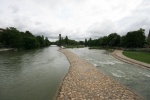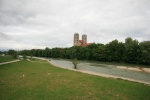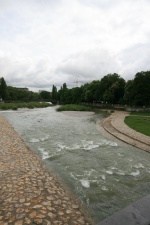Case study:Isar-Plan
Jump to navigation
Jump to search
Location: 48° 7' 40.09" N, 11° 34' 41.73" E
Left click to look around in the map, and use the wheel of your mouse to zoom in and out.
Project overview
| Status | Complete |
|---|---|
| Project web site | http://www.wwa-m.bayern.de/projekte_und_programme/isarplan/index.htm |
| Themes | Fisheries, Flood risk management, Habitat and biodiversity, Hydropower, Hydromorphology, Land use management - forestry, Monitoring, Social benefits, Spatial planning, Water quality, Urban |
| Country | Germany |
| Main contact forename | Matthias |
| Main contact surname | Junge |
| Main contact user ID | |
| Contact organisation | State Office for Water Management Munich |
| Contact organisation web site | http://www.wwa-m.bayern.de/index.htm |
| Partner organisations | River Restoration Centre |
| Parent multi-site project | |
| This is a parent project encompassing the following projects |
No |
Project summary
Edit project overview to modify the project summary.
The Isar Plan Project is a river restoration project on a stretch of 8Km in the inner city of Munich. The Project was initiated in 2000 and the last site was completed by 2011. The three main goals of the project were:
1) Flood protection
2) Enhancing Species diversity and ecological restoration
3) Improving leisure and recreation
Monitoring surveys and results
Edit project overview to modify the Monitoring survey and results.
The project is being currently monitored.
Lessons learnt
This case study hasn’t got any lessons learnt, you can add some by editing the project overview.
Image gallery
|
Catchment and subcatchmentSelect a catchment/subcatchment
Catchment
Subcatchment
Site
Project background
Cost for project phases
Reasons for river restoration
Measures
MonitoringHydromorphological quality elements
Biological quality elements
Physico-chemical quality elements
Any other monitoring, e.g. social, economic
Monitoring documents
Additional documents and videos
Additional links and references
Supplementary InformationEdit Supplementary Information
| |||||||||||||||||||||||||||||||||||||||||||||||||||||||||||||||||||||||||||||||||||||||||||||||||||||||||||||||||||||||||||||||||||||||||||||||||||||||||||||||||||||||||||||||||||||||||||||||||||||||||||||||||||||||





